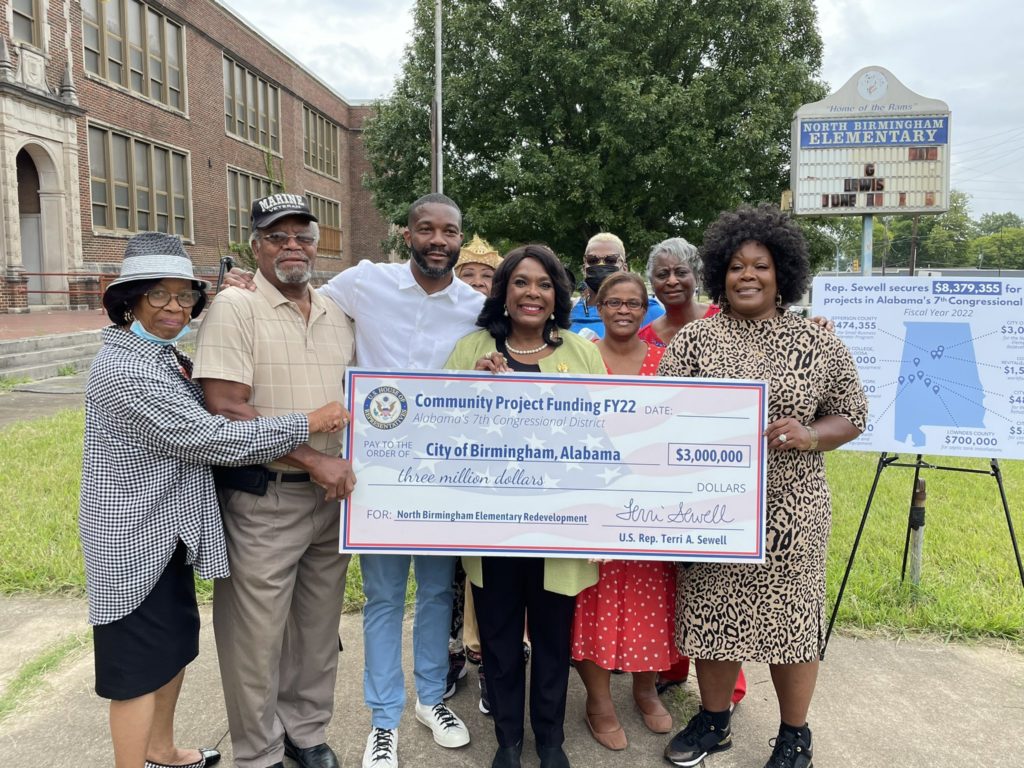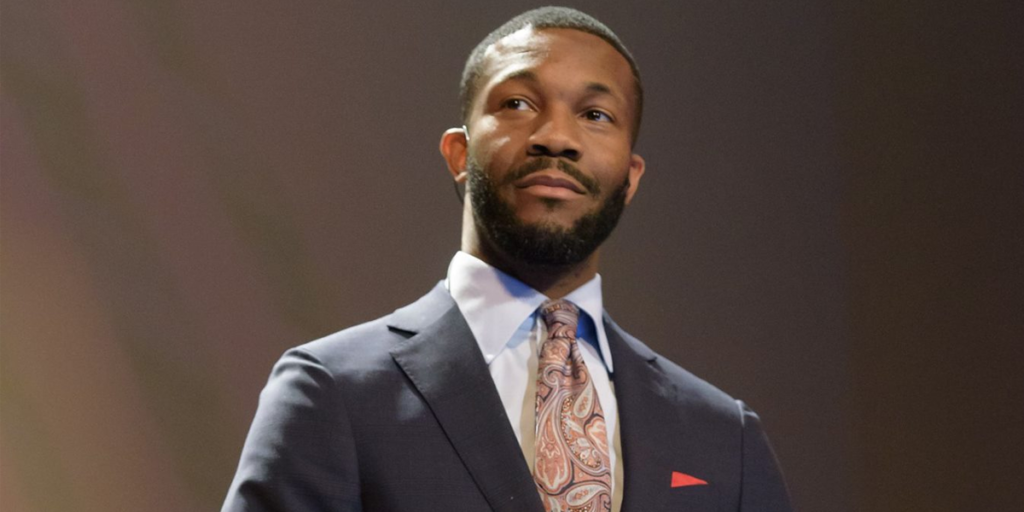Birmingham votes to allow medical marijuana dispensaries

On Tuesday, the City of Birmingham joined the growing list of Alabama cities that have voted to pass an ordinance allowing marijuana dispensaries within their city limits. “Yesterday, the City of Birmingham took the first steps to allow medical marijuana dispensaries in our city,” Birmingham Mayor Randall Woodfin said in a statement. “Licensing will begin next year.” “Alabama’s medical marijuana law is much stricter than many of the other 37 states with medical marijuana laws,” Woodfin explained. “Plant matter that can be smoked/vaped and edibles will not be allowed to be sold under the law as it currently stands. Topical oils, patches, oral capsules, and tinctures are examples of a few products that will be allowed under the law.” Only persons with a documented medical need and a doctor’s recommendation will be able to purchase medical marijuana in the state of Alabama. Cannabis advocates have lobbied the legislature for the state legalization of medical cannabis for years. The Compassion Act finally passed the legislature during the 2020 Alabama Regular Legislative Session and was signed into law by Alabama Governor Kay Ivey. The legislation created the Alabama Medical Cannabis Commission to regulate medical marijuana within the state of Alabama. “This law provides an opportunity to enhance healthcare and needed alternative treatments for the people of Birmingham and our state,” Woodfin said. “And it’s a big first step forward as many of us continue to encourage our state to expand this law and decriminalize marijuana completely.” “We are happy to have the City of Birmingham on board,” Alabama Cannabis Industry Association President Chey Garrigan told Alabama Today. “I have spoken with the City of Birmingham about offering this health option to its people, and I am pleased that the Council voted unanimously to approve the measure. We commend Mayor Woodfin for his leadership and progressive thinking.” The number of dispensaries, growers, and processors allowed in the state is being tightly regulated by the enabling legislation so not every community that wants a dispensary will be able to get one. Garrigan is confident that Birmingham will not be left out when the Commission awards the licenses next year. “There is tremendous interest within the cannabis community about citing dispensaries in Birmingham,” Garrigan said. It will be the middle of next year before anyone is granted a dispensary license in the state of Alabama and it will be months after that before anyone is able to legally obtain medical marijuana in Alabama. The Commission is only now beginning the process of accepting applications. Applicants have to obtain local approval for the Commission to issue any license, which is why it is important for a community to state their intentions early in the process so applicants know where the city stands and the local ordinance requirements. All the marijuana marketed in the state of Alabama will be grown and processed in the state. Alabama will not honor medical marijuana cards from other states. Only Alabama doctors who have received special training in cannabis will be allowed to recommend cannabis to their patients. Anyone interested in applying for a medical marijuana dispensary, grower, processor, transporter, or operated an integrated facility may download forms from the Commission website. To connect with the author of this story, or to comment, email brandonmreporter@gmail.com.
Terri Sewell secures $3 million in federal funds for the North Birmingham Community Development Rehabilitation Project

On Friday, U.S. Rep. Terri Sewell was joined by Birmingham Mayor Randall Woodfin and state and local officials to announce $3 million in federal funding for the North Birmingham Community Development Rehabilitation Project. Sewell secured the funding in the Fiscal Year 2022 Government Funding Package for the City of Birmingham. It will be used to redevelop the former North Birmingham Elementary School and address long-standing environmental concerns. “Today, government is working on behalf of the people of North Birmingham!” said Rep. Sewell. “This community has suffered from environmental injustice for far too long, and the people of North Birmingham know just how critical it is that we invest in clean-up and revitalization. This $3 million in federal funding will make a big difference for this community by helping to redevelop the former North Birmingham Elementary School and address long-standing environmental concerns. I fought hard to secure this critical federal assistance in this year’s government funding package, and I’m so excited to see it come to our community. I’ll continue working to make our communities cleaner, healthier, and more vibrant here in the 7th Congressional District!” “This is a great day for the people of North Birmingham,” said Mayor Woodfin. “North Birmingham has suffered from environmental injustice for over a century. These resources will help in righting some of the wrongs from decades of neglect. As a child of North Birmingham, I am particularly grateful. I lived here, went to school here, and know that justice is long overdue. Today says that we have not been forgotten. Thank you, Congresswoman Terri Sewell, for always supporting the people of Birmingham.” Sewell’s office said that the funding to redevelop the former North Birmingham Elementary School is part of the over $8 million that Sewell secured in the FY2022 government funding package for community projects in Alabama’s Seventh Congressional District. Sewell is a native of Selma and an attorney who resides in the Hoover-Birmingham metro area. She is serving her sixth term in Congress and is running for a seventh. She faces Republican Beatrice Nichols and Libertarian Gavin Goodman in the November 8 general election following redistricting by the Alabama Legislature that made the Seventh Congressional District more diverse and potentially more competitive. To connect with the author of this story, or to comment, email brandonmreporter@gmail.com.
City of Birmingham sues Trane for $25 million over unmet energy savings promise

The City of Birmingham filed a lawsuit March 30 against Trane U.S. Inc., asking for $25 million in damages, reported AL.com. The city is suing for $102 million in promised energy savings that never happened. The lawsuit states that financing and maintenance costs resulted in the project costing more than $100 million. The city also alleges that the cost shortfall and damages will exceed $25 million. “Trane engaged in nothing short of a bait-and-switch scheme that promised massive savings the company knew it could not deliver,” stated Birmingham Mayor Randall Woodfin. “We entered into this energy performance contract in good faith based on promises from Trane. Unfortunately, Trane has violated that trust, and the city now seeks full restitution from Trane for the citizens of Birmingham and the financial losses they have caused.” Trane promised energy-efficient upgrades to 119 city facilities that would be paid for by $80 million in energy savings. It promised an additional $22 million in operational savings over 18 years, for a total savings of $102 million. “Since entering into the contract, the city has discovered that Trane gave illusory savings estimates in order to secure this deal and avoid the public bidding process,” commented attorney Ashby Pate, a Lightfoot partner and counsel to the City of Birmingham. “As alleged in our complaint, Trane and its representatives had no intention of providing actual savings to the City but had every intention of enriching themselves in the process. The city has also incurred additional maintenance and operating expenses because Trane failed to provide fully functioning improvements.”
Birmingham Promise launches national search for new executive director

Rachel Harmon will be stepping down as Birmingham Promise chief in early 2022. The economic mobility initiative group is now launching a national search for a new executive director. Among the goals for the new leader will be to build on the organization’s initial fundraising successes and strengthen community partnerships. Harmon, a Rhodes Scholar, is leaving to attend Yale Law School and will remain on the job until a new director is hired. She deferred admission to ensure stability and continuity during the search for a new director. Harmon stated, “Helping to create and lead Birmingham Promise has been an immense honor and a privilege. While leaving is bittersweet, I am so proud that Birmingham Promise will exist long after my transition and will continue to help Birmingham students fulfill their potential and achieve their dreams.” Under Harmon’s leadership, Birmingham Promise has secured more than $25 million in private and public support for the program. Leroy Abrahams, who is chair of the Birmingham Promise board of directors, commented, “When we hired Rachel as our executive director, we knew she had the skills and the passion to put this new organization on solid ground,” said Abrahams, who is executive vice president of community affairs at Regions. “It’s a testament to her leadership that we are now in a position to move forward and build on what she has accomplished.” Birmingham Promise provides up to four years of tuition assistance for graduates of Birmingham City Schools who attend public colleges and universities in Alabama. They have provided almost 800 Birmingham graduates with financial support and success coaching while enrolled in college. Birmingham Promise also manages an internship and apprenticeship program that allows high school seniors to build valuable work experience while earning money and gaining academic credit. It has provided 150 apprenticeships, with an additional 100 student apprentices expected to be placed in jobs this spring. “Rachel kept Birmingham Promise moving forward during a time of uncertainty and upheaval in virtually every sector due to the impact of the pandemic. I couldn’t be more grateful for her tenacity and resolve,” Birmingham Mayor Randall Woodfin said. “As we move forward, I will continue to work closely with the new leadership to promote Birmingham Promise and the opportunities it provides for young people across our city.” “Birmingham Promise is about making a difference in the lives of our students and building a more prosperous future for our city,” Harmon said. “I’m leaving with confidence that this organization is going to achieve its mission in more ways than I can imagine.”
Steve Flowers: Huntsville is Alabama’s largest city

Huntsville has rocketed past Birmingham as Alabama’s largest city. It is not named the Rocket City for nothing. The Census Bureau had been predicting this amazing boom in population in the Madison (Huntsville)/Limestone area, but the actual figures recently released reveal a bigger growth than expected. Huntsville grew by 20% or 35,000 people and is now a little over 215,000. On the other hand, Birmingham shrank by 12,000 or 5% to 201,000 people. Montgomery held its own, and Montgomery and Birmingham are actually in a virtual tie for second at around 200,000. Mobile shrank to 187,000 and is now the smallest of the “big four” cities in the state. Our big four cities of Huntsville, Birmingham, Montgomery, and Mobile are all led by sterling mayors. Birmingham’s mayor, Randall Woodfin, and Mobile’s mayor, Sandy Stimpson, both won overwhelming reelection victories in late August elections. Mayor Woodfin won a very impressive reelection landslide victory on August 24. Woodfin garnered an amazing 65% of the vote against seven opponents. He won his first race for mayor four years ago, the old-fashioned way. He went door-to-door and knocked on an estimated 50,000 doors. He followed up this year by running one of the most picture-perfect campaigns in modern times. He again had a stellar grassroots campaign with a host of volunteers that knocked on an estimated 80,000 doors. Mayor Woodfin and his team are brilliantly adapting to the modern politics of using social media, yet he adroitly employs the old-school politics of mainstream television, traditional media, and getting out the vote. The initial polling on the mayoral race indicated that Woodfin could probably win reelection without a runoff, but nobody saw the 65% final result figure. I am convinced that the ad firm that designed his televisions ads garnered him a 12% boost from 53% to 65% with an ad using his mother. The ad featured Mama Woodfin asking her friends and neighbors in Birmingham to vote for her boy. She was a superstar. Mobile Mayor Stimpson also won an impressive 63% reelection victory on August 24. He was elected to his third term. Stimpson is a successful businessman from an old silk stocking Mobile family. He is doing the job as a civic duty. Mobilians must think he is doing a good job. Stimpson ran a positive campaign and spent a lot of money. Stimpson will be entering his third four-year term as mayor of the Port City. On election night, he indicated that this may be his last hurrah, noting that he will be 73 in 2025 and may be ready to hand over the reins. Huntsville’s mayor, Tommy Battle, won an impressive reelection last year. Montgomery mayor Steven Reed also won a very impressive first term election in 2020. The mayors of our four major cities are indeed popular. There is another dynamic developing in our state. The Morehouse College Degree and experience has become the standard of success among the new African American leaders in the state. It seems that this traditional historic college in Atlanta is where our elite leaders are spawned. The leadership of Montgomery are all products of this proud institution of higher learning. It is truly a powerfully bonded fraternity. Mayor Steven Reed, State Senator Kirk Hatcher, Probate Judge J.C. Love, and Circuit Judge Greg Griffin all have the same pedigree. They were born and raised in the Capitol City, went off to Morehouse for their education and national political networking, then came home to lead their city and Montgomery County. Birmingham Mayor Randall Woodfin is a Morehouse man. In his first race, his Morehouse friends and fraternity brothers from throughout the country, many of whom are professionals, doctors, lawyers, and businessmen, came to the Magic City to campaign and knock on doors for Woodfin. There was a room full of Morehouse men at Woodfin’s victory celebration on August 24 as he won his second term. By the same token, Huntsville Mayor Tommy Battle and Mobile Mayor Sandy Stimpson are products of the old school, 100-year-old University of Alabama fraternity called “The Machine.” Battle was a member of Kappa Sigma, and Stimpson was a Delta Kappa Epsilon. In closing, even though Huntsville is the largest city, folks in the Rocket City should not get too big of a head. The Birmingham/Hoover metro area is still by far the largest metropolitan area of the state by a 2-to-1 margin. See you next week. Steve Flowers is Alabama’s leading political columnist. His weekly column appears in over 60 Alabama newspapers. He served 16 years in the state legislature. Steve may be reached at: www.steveflowers.us.
Joe Biden backs Randall Woodfin in Birmingham mayoral race

U.S. President Joe Biden on Thursday endorsed Birmingham Mayor Randall Woodfin for reelection. “Mayor Woodfin is one of the great young leaders of our country,” Biden said in a statement. “From protecting the health and safety of the people of Birmingham to saving and creating jobs, to providing tuition-free higher education and fighting for voting rights, he sets the bar for making sure government works for the people.” Woodfin faces seven challengers in his bid for another term, including his predecessor in office. Former Mayor William Bell, Jefferson County Commissioner Lashunda Scales, former city worker Darryl Williams, sports agent and engineer Ervin Philemon Hill II, building contractor Chris Wood, businesswoman and mental health advocate Cerissa Brown, and Napoleon Gonzalez are seeking the office of mayor. The election is August 24. Republished with the permission of the Associated Press.
Randall Woodfin in national spotlight for spectacular failure in crime reduction

Mayor Randall Woodfin ran his campaign in 2017 on the notion that he had the answers that could solve the issues of gun violence and crime in Birmingham. The young attorney promised that he would ensure public safety, fight for criminal justice reform and racial justice, and hold police accountable. He believed the root cause of violence and crime was disinvestment in low-income communities and persistent, generational poverty. However, many activist groups who supported Woodfin and his vision are now looking to elect a new mayor, hoping that they can do what he has been unable to: solve the issue of violent crime in Birmingham. In Birmingham, murders have increased 5 percent in the city in 2021, and 2020 was the deadliest since 1995. So far in 2021, the city has recorded 65 criminal homicides, putting it on pace to surpass last year’s record, and most victims are young, Black men. In a detailed article, Slate reported on how Birmingham’s crime rate has risen even while Woodfin has tried to attack this issue from all sides. Woodfin argues that simply making arrests doesn’t solve the problem. During his time in office, he has helped establish many alternatives to simply policing and arresting criminals. He established the Mayor’s Office of Peace and Policy to target recidivism among Black men through social support and group therapy. The next year, he launched the Birmingham Promise Initiative, which gave students paid internships and covered the cost of their higher education. Many young progressives assume that all Black people want a smaller police force. But in Birmingham and many cities, that’s not the case. Woodfin has said that most of his constituents want more patrols, especially older people. Many still see police as the main way to combat violence. National surveys show that younger people are more likely to support defunding the police. “When I talk to the mommas and the big mommas in the neighborhoods, they want more police,” he said in 2018. “People my age and younger say more policing is wrong. As mayor, I’m in the middle.” Woodfin faces three main challengers in this election, and all of them are positioning themselves to be more “pro-police” than Woodfin himself. Mayor William Bell, businessman Chris Woods, and Jefferson County Commissioner Lashunda Scales are critical of how Woodfin has handled crime, saying he’s missed the mark. “People want to box me in and make me choose between reform and accountability measures, and policing and keeping the city safe,” Woodfin said in a June interview. “No, I reject your ultimatum. I can walk and chew gum at the same time. We can do both.” As the election draws near, Woodfin, activist groups, and previous Woodfin supporters continue to roll out new initiatives and ideas to address this complex problem. In April, Woodfin created the city’s first Civilian Review Board to investigate complaints of police misconduct. He pardoned 15,000 people for past misdemeanor marijuana convictions. In July, Woodfin banned the use of no-knock search warrants. Some groups have called for Woodfin to use American Rescue Plan money to help the issue. Many have pushed to fund alternative public safety strategies because they believe that relying primarily on law enforcement doesn’t work, and even that gets support from some law enforcement officials. Gregory Clarke argues that police are not the answer. “I’m not saying they don’t do their job—they do their job of responding to crime,” said Clarke, the founder of Birmingham Peacemakers and a leader of the local Fund Peace campaign. “The police had their budget increased. But the effect on crime didn’t match. Matter of fact, it went up.” Many groups who supported him in his last election have put their support behind other candidates. In January, the Birmingham chapter of Our Revolution publicly rescinded its endorsement. The local Black Lives Matter chapter called for his resignation after police shot and killed a 28-year-old Black man named Desmon Montez Ray Jr. “This family has been demanding that the leadership of this community, Mayor Randall Woodfin, council members, the police chief, anybody in leadership should have come to this family to offer their condolences,’’ BLM Birmingham co-founder Eric Hall stated. “That’s the right thing to do. That’s what leadership is.” “Birmingham voters believed that any work initiated by Mayor Woodfin to deter crime and violence would center root-cause analysis and comprehensive grassroots and community-based solutions,” several Black Lives Matter leaders wrote in an open letter at the time. “This is why it was a hard pill to swallow.” “I am sick and tired of people talking negative about our city,” City Councilor Crystal Smitherman said at a July summit in support of the Fund Peace campaign. “It’s time for the communities to step up and take charge of our neighborhoods.”
Huntsville now Alabama’s largest city, overtakes Birmingham

Huntsville has overtaken Birmingham as Alabama’s largest city, according to new Census numbers. Huntsville is now slightly more populous than Birmingham, according to U.S. Census numbers released Thursday. Huntsville has a population of 215,006. Birmingham, which had long been Alabama’s largest city, has a population of 200,733. However, the Birmingham metro area remains the largest in the state. The Birmingham-Hoover Metro Statistical Area has 1.1 million people, while the Huntsville Metro Area has 491,723. Huntsville, nicknamed the Rocket City for its historical ties to the space industry, has seen rapid growth over the last ten years, partly fueled by the tech and manufacturing sectors. The population of the city has jumped by 19% since 2010. “I’m proud that the great things we have going on in Huntsville have grown our city,” Huntsville Mayor Tommy Battle wrote in a tweet. “To tell the truth, we’re more focused on being the best than the biggest. That is what my team and I are going to continue to work on every day.” Birmingham got the nickname the Magic City for its rapid growth and had long been Alabama’s largest city. Much of the recent growth around Birmingham has been concentrated in the surrounding suburban areas rather than in the city itself. “Growth in any city is good for Alabama, good for Birmingham and for our metro region,” Birmingham Mayor Randall L. Woodfin said in a statement in response to media questions about the change to being Alabama’s second-largest city. He said city officials plan to analyze the data. “Birmingham is the nucleus of the state’s largest metro population and economic center. The Magic City continues to evolve as a diverse urban center and leader in regional growth. Our strength as a medical center, an emerging hub for tech start-ups and logistics center keeps Birmingham positioned for positive growth in the future,” Woodfin said. Montgomery is Alabama’s third-largest city, with a population of 200,603. Republished with the permission of the Associated Press.
HUD Secretary heads to Birmingham to sell Joe Biden’s $1 trillion agenda

Housing and Urban Development Secretary Marcia L. Fudge will be in Birmingham to promote the Biden-Harris Administration’s Build Back Better agenda. The visit comes after the Senate approved a Joe Biden’s $1 trillion infrastructure plan. The plan includes investments in housing construction and rehabilitation, economic development, and community revitalization. The Build Back Better Plan has goals for subsidies that will enable the construction or repair of more than 1 million affordable rental housing units and funding to build and rehabilitate more than 500,000 homes for low- and middle-income homebuyers. Secretary Fudge will be joined by Birmingham Mayor Randall Woodfin, Rep. Terri Sewell, and Birmingham Housing Authority President David Northern Sr. The event will be held at 10 am on Wednesday at the Villas at Titusville in Birmingham. Also on the agenda is a roundtable on affordable housing and community revitalization with community leaders and a tour of Southtown Court public housing community at 2:45 pm. Fudge is the 18th Secretary of the U.S. Department of Housing and Urban Development. She served as U.S. Representative for the 11th Congressional District of Ohio from 2008 to March 2021. She was a member of several Congressional Caucuses and past Chair of the Congressional Black Caucus. I’m so excited to be joining Mayor @randallwoodfin to welcome HUD Secretary Marcia Fudge (@SecFudge) to Birmingham!! Follow along tomorrow as we discuss @POTUS’ plan to invest in affordable housing, revitalize our communities, and #BuildBackBetter!👏🏾 https://t.co/ArkRTIp40K — Rep. Terri A. Sewell (@RepTerriSewell) August 10, 2021
Steve Flowers: Politics never ends in Alabama

We are all looking forward to next year’s gigantic political cavalcade. The 2022 elections in Alabama will be momentous. We will have an open U.S. Senate seat along with seven congressional seats, all running under new district lines. We have a Governor’s race along with all the other Constitutional offices. All 105 state representatives and 35 state senators will be running for reelection under new district lines. All 67 sheriffs in the state will be on the ballot, as well as all 68 probate judges. All these races are on the cusp of beginning or have already begun. However, we will have a mayor’s race in Birmingham this summer. The August 24 mayoral race in the magic city is shaping up as a Donnybrook. It is shaping up to be a rematch from four years ago between former mayor William Bell and current mayor Randall Woodfin. Four years ago, young Randall Woodfin defeated then mayor William Bell, the old fashion way. He outworked him. Woodfin went door-to-door in one-on-one campaigning in every precinct in Birmingham. He appears to have done a good job as mayor. He will be tough to beat. However, if anyone would do it, William Bell would be the one. He looks very distinguished and mayoral. In fact, I have often thought that if Hollywood were scripting a movie of a mayor of a city like the movie “Boss” with Kelsey Grammar, who played a Chicago mayor, that Bell would be the perfect actor. There are at least two other significant candidates vying to be Birmingham’s mayor, LaShunda Scales and Chris Wood, which may place Bell and Woodfin into a runoff. We have already had several special legislative elections throughout the state this year. Former Alabama House Member, April Weaver, won the Republican State Senate Primary for Senate District 14 on March 30. This senate seat was vacated when Cam Ward departed the Senate to become Director of the State Board of Pardons and Paroles. The district encompasses a good portion of Shelby County and all of Bibb and Chilton. It is a very Republican district. Therefore, Ms. Weaver’s victory is tantamount to election. She will face a token Democrat in the July 13 general election. Her triumph was extremely impressive. She garnered 82% of the vote against two opponents. She will be an effective senator for Central Alabama. In an open state House seat in Shelby County, U.S. Army Veteran Kenneth Paschal won the GOP Primary for House District 73, winning the Republican primary for a State Legislative district in a special election in Shelby County. Paschal won a close race over Leigh Hulsey, 51% to 49%. There is a special election for state House District 78 in Montgomery to fill the seat being left vacant with Kirk Hatcher moved up from the House to the Senate. There are several low-profile constitutional offices beginning to percolate for 2022. State Representative, Wes Allen, has announced and is running hard for Secretary of State. He is perfectly suited and qualified for that office. He is in his first term as a State Representative from Pike and Dale Counties. However, prior to that, he served 10 years as Probate Judge of Pike County, where he successfully oversaw elections. Wes is a native of Tuscaloosa, where his daddy serves as a State Senator. A successful Birmingham businesswoman, Laura Johnston Clark, is eyeing the State Auditor’s race. She was born and raised in Dothan and began her business there. She has deep and extensive family roots in the Wiregrass. Her father and mother and older brother are legendary and revered. She has been extensively involved civically in Birmingham for close to two decades. She is an integral part of next year’s World Games, which will be held in Birmingham. The current occupants of the Secretary of State and State Auditor’s offices, John Merrill and Jim Ziegler, are term-limited. So, these two offices are wide open. 2022 is going to be an exciting election year. See you next week. Steve Flowers is Alabama’s leading political columnist. His column appears in over 60 Alabama Newspapers. He served 16 years in the state legislative. Steve may be reached at www.steveflowers.us.
COVID-19 face mask requirement expiring in Birmingham

Alabama’s largest city will let its COVID-19 face mask requirement expire after Monday in what officials said was a step toward returning to pre-pandemic normalcy. Begun more than a year ago and most recently extended in early April, before the state dropped its mask requirement, the rule will end at a time when fewer patients are hospitalized with the illness caused by the new coronavirus since early April 2020. Noticeably more people have worn masks in the city than in outlying areas, and Mayor Randall Woodfin said the end of the requirement was a sign that vaccinations were making a difference. “I urge everyone to remain vigilant. If you haven’t received the vaccine, please do so. If you have loved ones or friends who have not been vaccinated, help them make an appointment,” he said, according to al.com. The head of the area chamber of commerce, the Birmingham Business Alliance, said member companies were split over whether the requirement should continue. “One-third said get rid of it,” Ron Kitchens, chief executive of the organization, told WBRC-TV. “And one-third said let’s keep it a little while and one-third said whatever leadership decides, we support.” Researchers at Johns Hopkins University said that over the past two weeks, the rolling average number of daily new cases in Alabama has decreased by 50, a decline of 14.6%. But there were still about 228 new cases per 100,000 people in Alabama over the period, which ranks fourth nationally per capita. Jefferson County, where Birmingham is, and heavily populated neighboring Shelby County led the state in case increases, the researchers found. Nearly 37% of the state’s residents have received at least one vaccine dose and almost 29% are fully vaccinated, according to Johns Hopkins. City Council President William Parker said anyone who isn’t vaccinated needs to continue wearing face masks to prevent another uptick in cases. “We’re making a lot of progress, but we still have a long way to go,” he said. Republished with the permission of the Associated Press.
Birmingham to pardon 15,000 with marijuana convictions

Alabama’s largest city will issue blanket pardons for more than 15,000 people with misdemeanor marijuana convictions dating back to 1990, Birmingham Mayor Randall Woodfin said Tuesday. The pardons, linked to city court cases, are automatic, Woodfin said in an announcement made on April 20, a day that many associate with marijuana use. Many people have a hard time finding work because of drug convictions, and Woodfin said the move would allow them to rejoin the workforce and provide for their families. “Here’s why we’re doing this – no one should be held up by a single past mistake. No one should be denied job opportunities or freedoms due to missteps from the past,” he said in a statement. The pardons will eliminate convictions for marijuana possession from criminal records from 1990 through 2020 but do not affect pending cases, said a news release. A pardon also does not cancel fines, fees, or other costs linked to a marijuana conviction. The announcement by Woodfin, a Democrat, came as the Alabama Democratic Party said it would support the legalization of marijuana for recreational and medical use in the state. Legislative committees have approved a Republican-backed bill allowing marijuana for medical uses, putting the measure in line for a key vote in the Alabama House. Rep. Chris England, the chair of the state Democratic Party, said thousands of people have been “trapped” in the state’s criminal justice system because of laws against marijuana. “Reforming policy surrounding cannabis not only serves our state in producing hundreds of millions of dollars in revenues but is an important step in reducing arrests and expunging records. Nobody should be sitting in jail for carrying a little bit of weed,” he said in a statement. Republished with the permission of the Associated Press.


